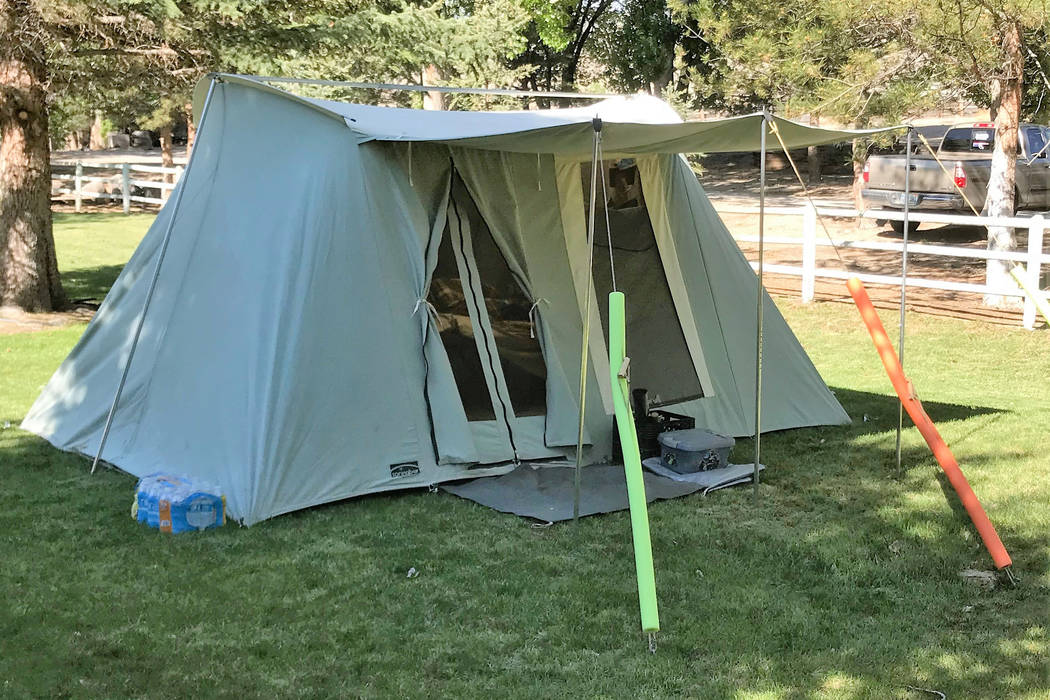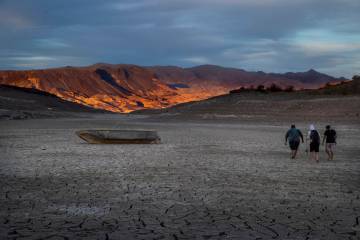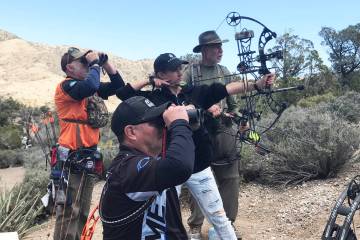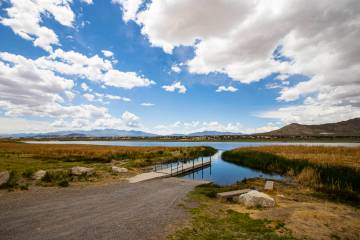Here are some tips if you’re looking to buy a tent
In the years following World War II, Americans took to the open road in numbers never seen before. Not for recreational purposes anyway.
New highways and paved roads opened access to the country’s wildlands and provided access to its natural wonders. And a booming postwar economy provided people with the financial wherewithal to get there.
At first, there were no formal campgrounds, or few of them, especially in the West. And there weren’t any RVs, either. People who went camping either slept under the stars or in a tent.
One of my earliest camping memories is of my dad telling us siblings to slide down inside a large double sleeping bag where we spent the night next to a campfire. Such was often the case, and I still enjoy sleeping under the stars when the weather is cooperative. When it isn’t, a simple tarp can provide shelter from the elements, but not everybody feels comfortable in such primitive digs.
As a result, RVs have become the norm for many campers, but they are rather costly and limit the places you can set up camp. Then there is the storage factor.
Tents, on the other hand, have remained relatively affordable and provide camping flexibility. While they don’t have the comforts available in an RV, tents can be easily stored in a garage or storage shed and transported in a car or pickup truck bed.
Along with providing shelter from the elements, tents also give people the peace of mind that makes it possible for them to sleep outdoors. Not that tents provide the same level of physical protection that RVs do, but their walls provide just enough separation from the outdoors to soothe nerves and fears some have of being in the outdoors when the sun goes down.
If you are thinking about buying a tent, begin your search by answering a few questions. How do you plan on using your new tent? Are you looking for something to carry while backpacking, or will you be camping with your vehicle? How much room do you need or want? Are you a fair-weather camper only, or will you be out when inclement weather hits?
The answers to these and other questions will determine what type of tent you should look for. Then determine your budget, but keep in mind that cheap tents often found in discount stores might not be such a good buy. One good rainstorm will reveal just how good that tent is.
Today’s tents are generally made from some type of nylon fabric or canvas. Nylon tents are lightweight and don’t require a lot of space in your vehicle. If your space is limited or you plan on backpacking with your new tent, skip the canvas tents and spend your time looking at the nylon offerings.
Since my backpacking days are over, I prefer a canvas tent for many reasons. They will stand up to the elements and last for years. They also are quite roomy and tall enough to stand in. But canvas tents have drawbacks. They are heavy, the tent and poles take up a lot of space, and a good one will set you back a chunk of change.
When looking for your tent, pay attention to the sleeping capacity. The number should be noted somewhere on the packaging, but don’t take the manufacturer’s word for it. Their calculations are based on a rather snug fit. If the capacity tag says four, it’s probably closer to two. If you are a claustrophobic person or simply like a little wiggle room, buy up a size or two.
Weather rating is another serious consideration. For most of us, a three-season tent will fit the bill. These lightweight offerings are designed for the more temperate times of the year but will stand up to a good rainstorm. A three-season tent is not designed for sustained storms, heavy winds or winter conditions.
If you plan to camp late into the fall, in the winter or early in the spring, go with a four-season offering.
Freelance writer Doug Nielsen is a conservation educator for the Nevada Department of Wildlife. His “In the Outdoors” column, published Thursday in the Las Vegas Review-Journal, is not affiliated with or endorsed by the NDOW. Any opinions are his own. Find him on Facebook at @dougwritesoutdoors. He can be reached at intheoutdoorslv@gmail.com.







